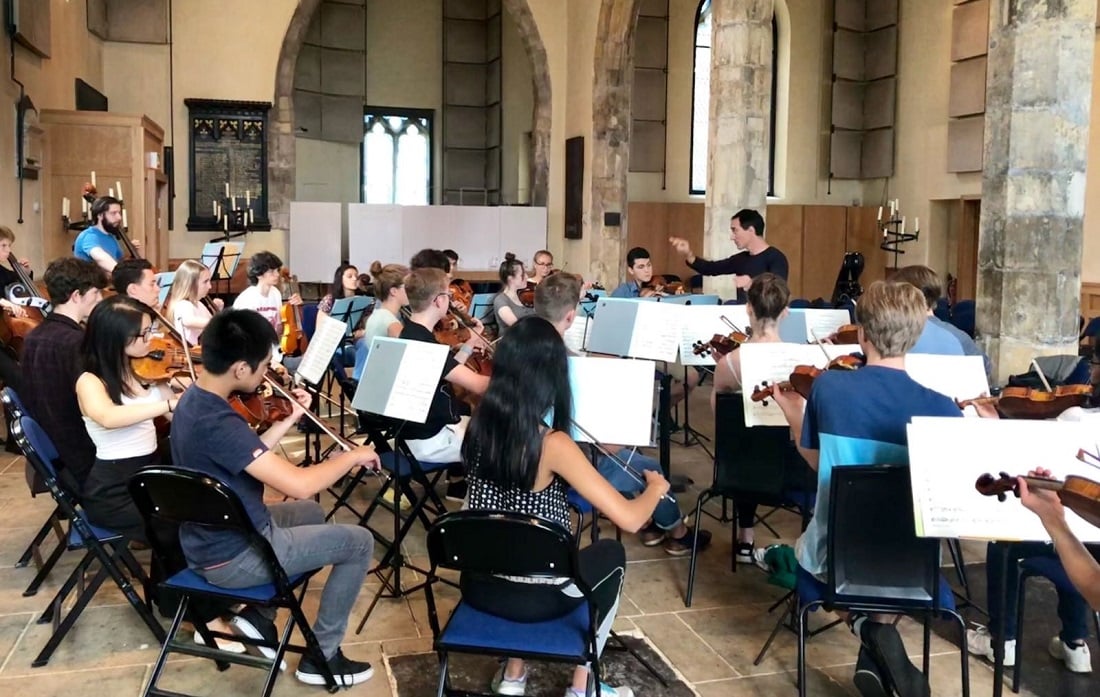
Giving talent a fair hearing
What recruitment practices best support diversity? Damian Iorio explains how the National Youth String Orchestra makes sure it’s ability and not background that counts.
The issue of diversity and inclusivity present in much of today’s conversation surrounding classical music can be drawn in a straight line back to music education and our encouragement of musical talent in young people. The nature versus nurture debate is one that has raged on for decades, even centuries – and yet it seems that we are still no closer to an answer, if there even is one.
The removal of resources creates inequality and this will always have a negative influence on diversity in any field
Regardless of which side of the fence you sit on, or whether you are balancing precariously in the middle, one thing is absolutely certain: providing music education to all children is paramount to the development of a diverse range of excellent musicians.
With so many studies pointing to the benefits of teaching children music – emotional and verbal development, fine motor skills and increased test scores – it is a wonder that so few schools offer advanced music education. This is not to say that we should hothouse children to become twenty-first century musical prodigies, but with a good music education beginning early in life, children are able to develop skills that will fundamentally advance their general education and development, as well as nurturing future talent.
Shrinking resources
I for one am no stranger to difficult cuts in music education. As the third generation in a family of musicians, I grew up learning the violin and attended a state school in London during the Thatcher era, when cuts were being made in schools and music was regarded as dispensable. If it wasn’t for certain teachers fighting huge battles and defending music education, pouring their hearts and souls into our education, music would have suffered much more and I owe much of my career to so many of them.
I was also lucky to have access to some great school orchestras and state music provisions, including the Centre for Young Musicians (CYM), culminating in the London Schools Symphony Orchestra (LSSO). The CYM and the LSSO are still around to this day, but unfortunately for many young people today resources and opportunities are becoming increasingly scarce, and many talented musicians and teachers are unrecognised, underpaid and underappreciated.
The removal of resources creates inequality and this will always have a negative influence on diversity in any field. We should be cultivating much more the rich musical and pedagogical resources that we have, as they are valuable tools for a healthy and diverse society.
Best players
During my seven years at the National Youth String Orchestra (NYSO), I am proud to have been able to expand the horizons of talented young musicians. Our aims are to provide specialist, quality training for young string players that show particular talent, and to give them regular experience and training in the art of public performance – both in the UK and on overseas tours. I live for those moments on stage when everything that we have worked so hard on culminates in a performance that transports the audience to another world.
How do we ensure that it is ability rather than background that counts? I am determined that no child should have a significant advantage over another based on their background. At the auditions, young musicians are judged on their playing ability alone. I have minimal information about each candidate – I am not concerned with where they come from or where they go to school. I simply want the best players that will best suit the orchestra.
Some orchestras argue that the only way to be truly subjective in an audition is to run blind auditions where the candidate performs behind a screen. In professional orchestras this may well be an effective strategy, but when auditioning young people it is vital to see how the child is set up technically, so it is important to use both eyes and ears to inform the final decision.
Once someone has successfully auditioned and been accepted, financial assistance is available to anyone who might need economic help. Financial situation will never be a barrier to our members, as our bursaries were a founding principle of the orchestra and will always remain integral to our approach.
Being music director of the NYSO has been a rewarding experience. We work very hard and the results are exceptional. I see the enthusiasm of the young musicians and what the orchestra experience gives them. It’s like watering a plant – you really see the children grow.
Damian Iorio is Music Director of the National Youth String Orchestra.
www.nyso.uk
Join the Discussion
You must be logged in to post a comment.